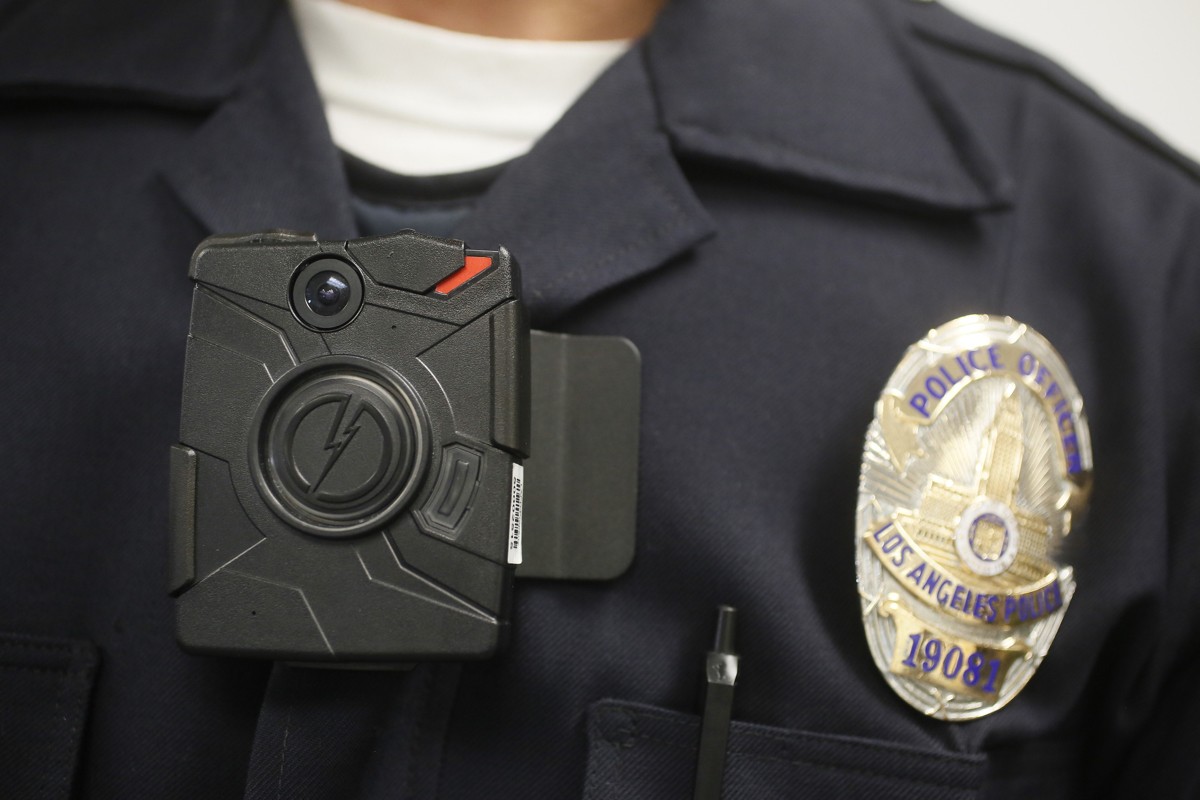Amid Tepid Support for Boston Police Body Cameras, No Volunteers Step Forward

Photo via AP.
Even after a slow start to the Boston Police Department’s rollout of a pilot to test body camera equipment, and with less-than-enthusiastic support from the city’s police commissioner, the program is apparently a go, and is set to begin in a few short weeks.
Except there’s one big problem: Not a single Boston police officer in a force of more than 2,000 has volunteered yet to take part.
As of Monday, according to an email from spokeswoman Myeshia Henderson, “0 officers have volunteered.”
So now it looks like the officers will have to wear the cameras against their will. Police Commissioner William Evans has said he would begin assigning police to wear the cameras for the six-month trial if too few came forward on their own. “Officers can be made to wear body cameras,” Henderson wrote. She did not say whether those officers have been selected yet.
Police announced in mid-July that a deal had been struck with union leaders and that the program —in the works for two years—could begin as early as August. At this point, police still believe the six-month test could get started in the early part of September but the lackluster support from police officers themselves has called that into question once again.
So, what happened?
Evans told the Associated Press, which published a story about the dearth of volunteers yesterday, that the pilot program has been a “hard sell.” He said the same thing at a community meeting two weeks ago.
The incentive for participation, which will require training and new responsibilities on the job, was a $500 bonus.
The Boston Police Patrolmen’s Association, the city’s largest police union, did not respond to requests for comment on Monday.
But Patrick Rose, the union’s president, tells the Boston Herald a recent spate of shootings of police officers may have influenced decision-making.
“The city decided to agree to this program within a week of eight police officers being murdered in two separate cities and, meanwhile, our members were screaming for protection which was falling on deaf ears,” he says.
Boston is among cities around the country pursuing the wearable recording devices after a series of high-profile police killings sparked street protests and new calls for officer accountability. The city has set aside $500,000 to run the pilot.
From the start, Boston police had not been fully receptive to the idea. Before the commissioner said he would support the pilot and calling it “important,” Evans said he didn’t believe his officers needed the equipment.
Proponents believe the technology could have a broad impact on policing nationwide, offering a better view of what happens when police and community members interact and making those interactions more safe, including for officers.
Others, like Evans has, argue that progress has to be made in incremental steps to improve relationships with neighborhoods, and that cameras aren’t critical to that mission.
It’s also another expense for police forces to absorb, and research on how effective they are is still inconclusive. Major police equipment purveyors are already betting big on their role in the policing of the future (there is a lot of money to be made selling not just cameras, but cloud space to store all the data they collect, and a certain maker of ubiquitous police stun guns is already taking over the market).
At the same time, the voluntary nature of the program itself rankled activists like those representing the Boston Police Camera Action Team, which argued that if officers took part by choice, only the very best in the department would come forward—making it less likely that the cameras might expose bad actors.
So “maybe there’s a sliver lining” in the fact that the program may not end up being voluntary after all, says Segun Idowu, BPCAT’s co-organizer.
Idowu says he’s “not surprised” that no police officers have signed up yet, attributing it to a lack of enthusiasm in the department for the program. He also said he found it “alarming” that police unions are instead seeking more powerful firearms and other equipment this month.
Even if the rollout of the body camera pilot comes with yet another delay, Idowu says he’s remaining patient.
“This thing could start next year,” he says, “but if that meant that in that year we got what we were looking for in the policy, we would be fine about that.”


